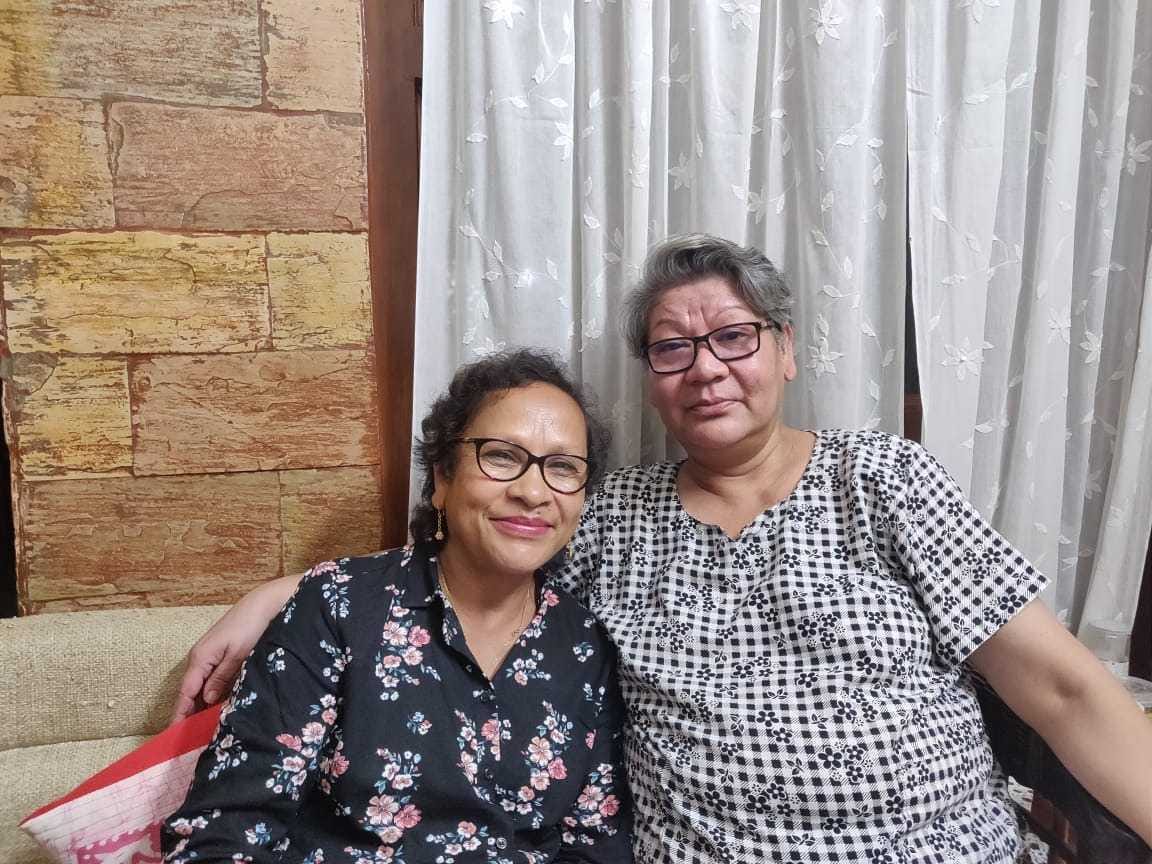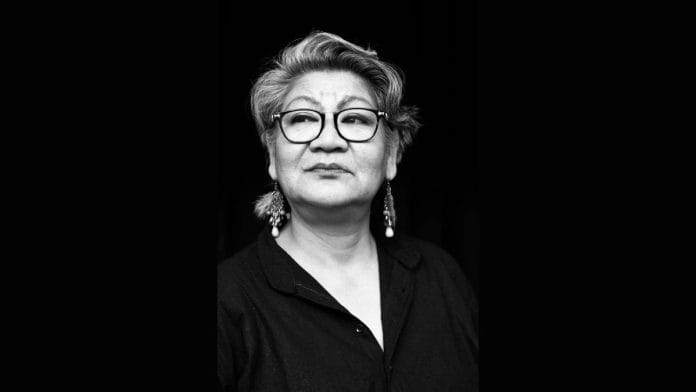For 40 years, her articles always carried a stinging punch. And it was with the same roundhouse flourish that Monalisa Changkija waved goodbye to her job as editor of Nagaland Page, the only newspaper in northeastern India, founded and run for 25 years by a woman who is also Nagaland’s first woman journalist.
“I was a journalist, then I became a newspaper editor. As an editor, there are so many things one cannot do. Time doesn’t permit,” Changkija said at a press meet in Dimapur on 7 January. “Due to financial and personal reasons, not necessarily in that order,” she was folding up the newspaper, she announced. The Nagaland Page had turned 25 last May.
There were a few moments in her address when the 64-year-old-silver-haired first lady of Nagaland media had to dab her eyes dry. Closing down a daily built with blood, sweat and tears is tough. Breaking quickly, however, into her trademark raspy, smoke-induced laugh, Changkija added, “But now I am back to being a journalist, I want to only write and, in the process, I will probably make some people more unhappy.”

‘I never could stand bullies’
Her work over 40 years made many unhappy in Nagaland, especially people in positions of power to whom she spoke the truth. One of her first assignments was reporting on the violent Merapani clashes of June 1985 between Assam and Nagaland police over a border dispute that left over 40 people dead. She had just joined the newspaper, Nagaland Times, in April that year.
Human rights violations by the Army, shielded by the Armed Forces Special Powers Act (AFSPA), was one of Changkija’s bete noires. Her reportage earned her the wrath of some Army officers. A couple of juniors, angry at her reports on military high-handedness, sent letters to the editor questioning her morality. “It was a slut-shaming exercise. My editor was shocked. But I said publish the letters, let everyone know what they are capable of doing,” she said.
“The Army’s top officer, the GOC, who personally knew me, was furious when he saw the letters and pulled up the officers and the bullying stopped,” she recalled. “I never could stand bullies.”
“Friends were always telling me I shouldn’t cross certain laxman rekhas,” said the veteran. “But in journalism, you have to cross laxman rekhas. Otherwise, what’s the point of being a journalist?”

Patricia Mukhim, one of a few prominent women journalists in the northeast and editor of Shillong Times, is Changkija’s contemporary. She called her after hearing of the closure of Nagaland Page. “I think it’s a great loss of a dynamic and liberal voice from Nagaland and northeast—a voice that fearlessly took on the power holders and held them accountable for decades. She (Changkija) was also unrelenting in taking on the non-State actors and at one point was even summoned by the NSCN(IM) for something she had written,” she told me.
Bano Haralu, Dimapur-based journalist formerly with NDTV, said, “Monalisa is a vocal voice who put Nagaland on the media map of the country. I hope the paper’s closure won’t mean that voice will become silent. Nagaland needs her.”
Some feel Changkija was overly judgmental and aggressive in her journalism. “She was often more judge, less journalist,” said one in Kohima. No business sense, said others, with ad revenues uncertain, given her uncompromising critique of the government — and in all of the northeast, the government is the biggest advertiser. Also, perhaps when she launched the Nagaland Page, she had hired more people than she needed. It was a loyal team and her senior colleagues like Moa Longekumer and Dilip Sharma have been with her for almost all of 25 years. But all of it ultimately made the paper unsustainable. However, even her worst critics doff their hats to her frank and fearless spirit. “She was never cowed by any threat. And there were many.”
Also read: I served in Nagaland during the peak of insurgency and without AFSPA
Always breaching barriers
Changkija abandoned a political science MPhil at Delhi University to return to Dimapur and begin to work at Nagaland Times. She was a reporter but also wrote a column called State of Affairs. It was so popular, that a rival Dimapur paper, Ura Mail, invited her to write a column, too. She did, with the Times editor’s reluctant nod. One journalist writing columns for two rival papers in the same city is almost unheard of.
“The university space was small and journalism turned the whole world into my classroom,” said Changkija. “People thought I was mad to give up my studies for a job at a salary of Rs 300 a month. Maybe I was. But I have loved it.”
It is a madness she has never regretted—a passion that, in 1987, made her take a 10-hour, 250-km bumpy taxi ride from Dimapur to Mon with her 11-month-old daughter, milk bottle, baby food and all. Upon arriving, Changkija left the infant with her mother and dashed off to cover a Rajiv Gandhi poll rally. His security had encircled him to hold back the crowd. But Changkija ducked under their linked hands to go meet the Congress leader and took a photo with him to demonstrate her determination to breach barriers.
Always.
That determination made the Nagaland Page a formidable voice. With its closure, Changkija may have lost a platform but not her pen, powered by pluck and punch and also poetry. She has two anthologies to her name.
In her farewell editorial of 21 December, she wrote, “…Beginnings also have endings…not meant to be mourned but celebrated much like life and death… Like beginnings, endings and deaths are never finality but a path to rejuvenate.”
The farewell is really au revoir, till Monalisa Changkija 2.0 is back with her pen.
Monideepa Banerjie is a senior journalist based in Kolkata. She tweets @Monideepa62. Views are personal.
(Edited by Ratan Priya)






